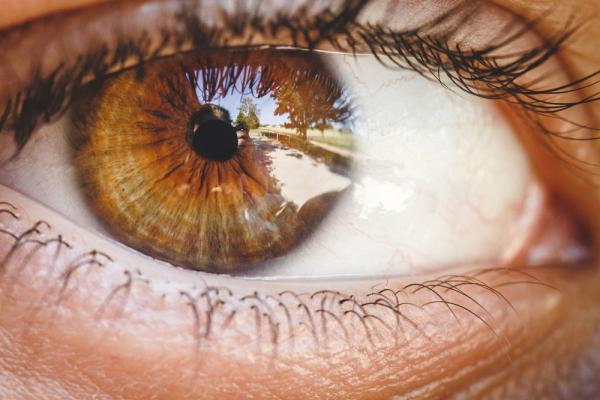If you enjoy the wonders of medical research, this is proving to be a very interesting week.
In just two days we've learned that German researchers discovered a key factor that explains why pancreatic cancer is as aggressive and deadly as it is. And now, there's another eye-opening discovery on the same continent, one that may someday lead to ways to improve sleep patterns, providing solutions for jet-lag sufferers and drowsy, night-shift workers alike.
English researchers in Edinburgh have "found a new group of cells in the retina that directly affect the biological clock by sending signals to a region of the brain which regulates our daily (circadian) rhythms." This cellular group – retinal ganglion cells – sends information solely about ambient light and its changing intensity to a specific part of the brain called the suprachiasmatic nucleus (SCN), which serves as the biological clock and controls our sleep-related impulses and reactions.
While this process was generally theorized by researchers, these specific findings were not previously known.
The retinal ganglion cells are unlike the others in the retina. Those – called "cone cells" and "rod cells" – are responsible for transmitting signals about imaging and what the eye is actually focused on.
When retinal ganglion cells sense bright light, the body reacts as if it's daytime, or early in the awake-sleep cycle. And when ambient light intensity dims and darkness begins to arrive, the body clock senses it's approaching time to sleep. But when bright light is present nearing the end of the cycle, and the circadian rhythm is regularly disrupted, it can lead to a range of health issues, including obesity, diabetes, cardiovascular disease, depression and even early mortality.
 Adding to this interesting discovery, the lab-rat study delivered yet another find by identifying the presence of vasopressin. This, researchers say, is a signaling molecule which travels from the retinal ganglion cells to the brain.
Adding to this interesting discovery, the lab-rat study delivered yet another find by identifying the presence of vasopressin. This, researchers say, is a signaling molecule which travels from the retinal ganglion cells to the brain.
"This research shows for the first time that the retina has its own population of vasopressin-expressing cells which communicate directly to the SCN and are involved with regulating the circadian rhythm," according to a statement from The Physiological Society.
The study, "Vasopressin casts light on the suprachiasmatic nucleus," was completed in conjunction with researchers from Augusta University's Department of Physiology in Augusta, GA. While it has not yet been officially published, the study, which is accessible in The Journal of Physiology, has been peer reviewed and accepted for publication.
"Our exciting results show a potentially new pharmacological route to manipulate our internal biological clocks," said Mike Ludwig, Professor of Neurophysiology at the University of Edinburgh and the study's lead investigator, speaking to the British newspaper The Daily Mail. "Studies in the future which alter vasopressin signaling through the eye could lead to developing eye drops to get rid of jet lag, but we are still a long way off from this."




